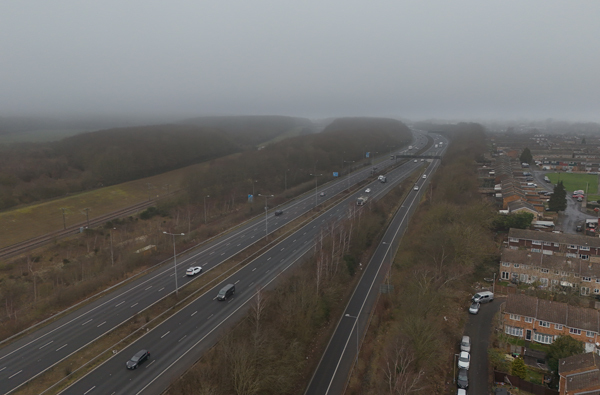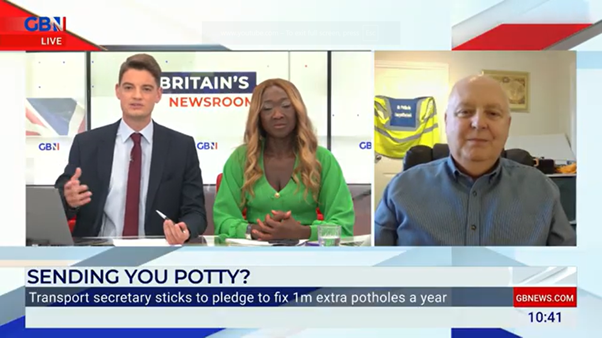The Government has still not confirmed National Highways' funding for this financial year, despite the regulator warning the current portfolio 'appears to be undeliverable' if the crisis is not resolved.
In its assessment of National Highways' performance during 2023-24, the Office of Rail and Road (ORR) revealed an ‘expected' gap of £919m between the promised funding and the cash available within the Department for Transport's (DfT) business plans for last year and the current financial year.
The ORR noted that National Highways responded to the cut by managing its spending and activities during 2023/24 to meet the expected reduced budget and developed a proposal for a net reduction of £1,067m to capital spending, which also takes into account cost increases of £148m.
However, National Highways also requires government approval for this planned spending reduction, for which it has identified cuts of £748m, leaving £319m of underfunding that it is calling ‘pressure'.
The ORR warned that National Highways current portfolio ‘appears to be undeliverable if these budget constraints are not resolved' and that certainty was vital not just for this road investment strategy (RIS) but for preparations for next year's new RIS.
The warning underpins the headline observation from the ORR report that ‘if performance continues on its current trajectory the expected benefits of RIS2 for road users and taxpayers are at risk.'
The Department for Transport has confirmed that, although the Statement of Funds Available for RIS 2 set out the funding provided for the five-year RIS period 2020-2025, funding for 2024/2025 is currently being reviewed as part of an audit of public spending for the current financial year.
This means that National Highways' funding for the final year of RIS 2 had not been confirmed with only six months left to go, and it is left facing uncertainty over spending and spending cuts.

The revelation goes against the stated purpose of the RIS process, which is to give the company long-term financial security.
Professor Steve Gooding, director of the RAC Foundation and a former director general for roads at the DfT, told Highways: 'The role of regulators in holding their regulated companies to account is widely understood but they also have the significant role of recognising the challenges those companies face and the implications for what they can reasonably be expected to deliver at what cost, hence the importance of the ORR observing this uncertainty hanging over the National Highways budget and the chill it will have sent through the spine of its industry supply chain.
‘It is understandable that the new government might want time to decide on the direction it wants to set for RIS 3 but uncertainty itself comes at a price and the clock is ticking.'
Highways has also approached National Highways for comment.
The company's 2023-24 annual report and accounts states that its total budget for the 2020-25 roads period, which was originally £27.4bn but was cut to £24bn in 2021, has now been reduced to £23.1bn.
Its interim chief financial officer, Scott Dale, noted that the company had begun 2023-24 with capital funding of £3.611m but that delivery challenges to its capital enhancement portfolio had created an underspend, described as a ‘capital surplus'.
This was ‘repurposed to address the significant inflationary pressures on our renewals programme, allowing us to deliver our outputs, despite the increased costs'. Mr Dale noted that the company had returned £190m of the surplus to the DfT ‘as part of HM Treasury's supplementary estimates process'.
The Treasury's supplementary estimates document confirms this, and that the challenges to the works programme resulted from what it calls ‘the continued impact of Development Consent Order (DCO) challenges on major road projects'.
The October issue of Highways magazine will include a detailed analysis of National Highways' funding situation and its impact as the company plans for RIS 3.
































